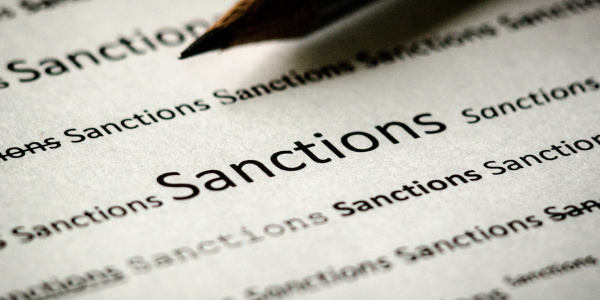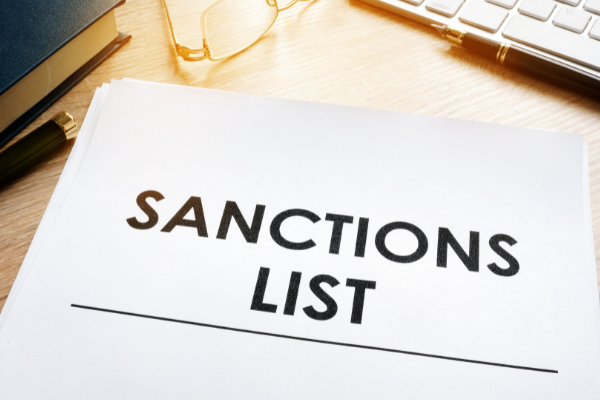BY:
SHARE:

Financial Sanctions are a critical area of trade compliance that any business must consider. HM Treasury is the government’s economic and finance ministry. OFSI, the Office of Financial Sanctions Implementation, are part of HM Treasury. The role of OFS I is to ensure that financial sanctions are properly understood, implemented, and enforced in the UK.
In theory, a sale of goods could be subject to export licensing controls administered by the Export Control Joint Unit and the approval of a licence issued by OFSI, if the sale is subject to Financial Sanctions.
OFSI provides a list of asset freeze targets and a list of persons named concerning financial and investment restrictions under Russian regulations.
The OFSI guidance states that when an Asset Freeze applies, it is generally prohibited to;
- deal with the frozen funds or economic resources belonging to or owned, held, or controlled by a designated person
- make funds or economic resources available, directly, or indirectly, to, or for the benefit of, a designated person
- engage in actions that, directly or indirectly, circumvent the financial sanctions prohibitions
The funds and economic resources will be frozen immediately by the person in possession or control of them. An asset freeze does not involve a change in ownership of the frozen funds or economic resources, nor are they confiscated or transferred to OFSI for safekeeping.
Regarding licensing under Financial Sanctions, OFSI has published a helpful blog linked to their General Licences.
OFSI has now provided a list of FAQs as supplementary information to support their primary guidance. OFSI confirms that if a company is unsure about its obligations in a given case, it should seek independent legal advice.
OFSI has issued a notice regarding Financial Sanctions enforcement and monetary penalties guidance. This notice is related to The Policing and Crime Act 2017 (the “2017 Act”), which contains powers for HM Treasury to impose monetary penalties for breaches of financial sanctions.
Section 149 (1) of the 2017 Act states that the Treasury must issue guidance as to:
- the circumstances in which it may be considered appropriate to impose a monetary penalty under section 146 or 148
- how it will determine the amount of the penalty
Part 8 of the “2017 Act” relates to Financial Sanctions. 146 is the Power to impose Monetary Penalties, and 148 is Monetary Penalties: bodies, corporate and unincorporated associations.
The notice includes OFSI’s compliance and enforcement approach, how OFSI assesses potential breaches of financial sanctions and the procedure for imposing a monetary penalty.
There is also a section on the Publication of Penalties which confirms that OFSI will publish reports about the monetary penalties under section 146 or 148
The most recent communication from OFSI relating to financial sanctions was published in August 2023
If you are interested in exploring this topic further, you might find it worthwhile to consider the training courses and live clinics offered by Strong & Herd LLP:
OneCall™ Email assistance as and when required; A one-call solution for all your import, export and customs enquiries. Export help. Import help. Customs help.
Stay informed about customs and international trade matters by subscribing to our OneCall™ service. This comprehensive offering includes a dedicated email helpline for support, timely practical updates direct to your inbox (Did You Know?), monthly UK Customs & Trade Briefings and access to an interactive members' area with an exclusive community for our subscribers.
International Trade Updates & Spotlight Newsletter
Subscribe to our free information emails covering international trade topics...











